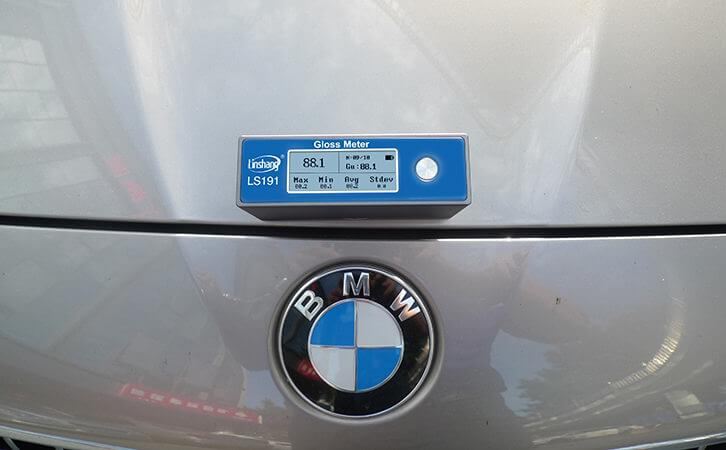How to Use Gloss Meter to Measure Gloss ?
Yesterday we have introduced why we need to measure gloss with a gloss meter,today we will talk about how to measure gloss and some general knowledge about gloss meter.
To choose the right gloss meter for your application, you will need to evaluate whether the surface you’re looking to test is high gloss, medium (semi) gloss or low gloss. You will also want to take into consideration the type of material to be tested by the gloss meter. After determining these characteristics, you may use the following guidelines to identify the angle needed to obtain the most accurate measurement:
20°= high gloss coatings, plastics, brightened metal and similar materials
60°= medium (semi) gloss coatings, plastics, brightened metal and similar materials
85°= low gloss coatings, plastics, brightened metal and similar materials
A gloss meter uses a method of measurement to determine the intensity of a light reflected by a surface to be tested. The measurement values determined by this method with a gloss tester under a fixed angle of incidence act as reference values which are relative to the gloss of the surface. The measuring head of the gloss meter which is adapted to the angle of incidence (20°, 60°, 85°) is placed on the material surface and the gloss value can be read out at the scale of the gloss meter. The gloss meter measuring aperture must be calibrated and a statistically sufficient quantity of data must be determined. The angle of measurement is predetermined by the gloss of the sample to be measured with the gloss meter.
